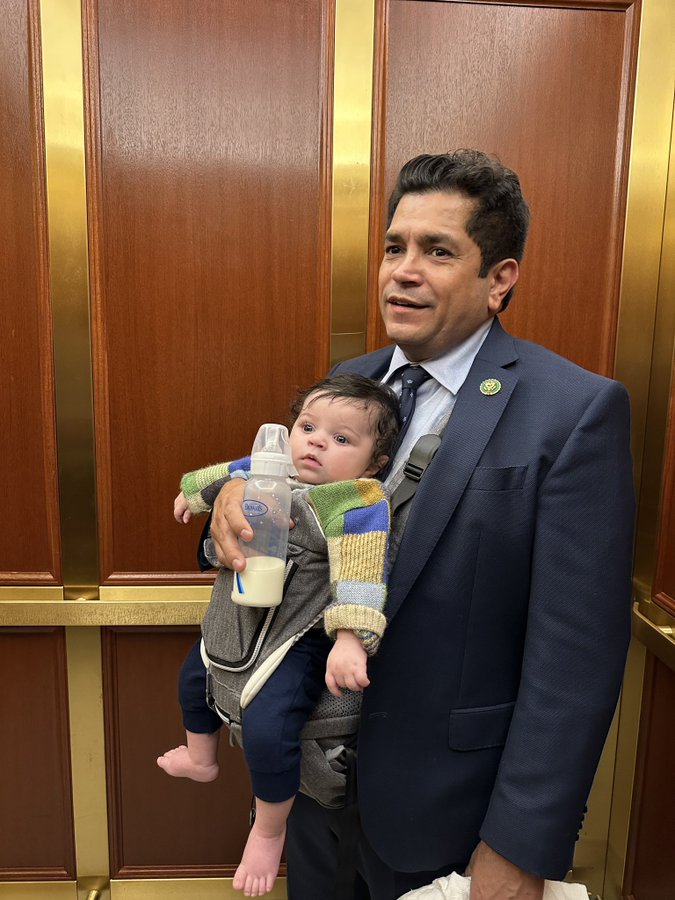January 26, 2022
The U.S. tax code is ever-evolving and can feel complex for many families. This is especially true for the Child Tax Credit, which has taken parents on a roller-coaster ride in the last two years. Prior to 2021, the provision was only issued once a year and made accessible to working parents above a certain income level. To help families hit hardest by the pandemic, however, the Biden Administration modified the tax code, raising the amount and making it available to most American families through monthly checks — but only temporarily. As a result, millions of struggling families have had a glimpse of what life could be like with financial stability. But only a glimpse.
The Child Tax Credit started in 1997 as part of the Taxpayer Relief Act and was designed to help primarily middle-class families with the growing cost of raising children. The original credit was $400 per child under age 17 and was nonrefundable for most families, meaning it allowed taxpayers to lower their tax liability to zero, but not below zero. Since then, the credit has been incrementally increased over time, reaching $2,000 per child, with $1,400 fully refundable. This meant that if you had no or little tax liability, you could receive either the balance or the full $1,400 as a payout — but only if you made above a certain income level.
 When the pandemic hit in 2020, hundreds of thousands of parents and caregivers, especially those who were low-income workers, lost their jobs or had to quit to care for their children, resulting in a widening wealth gap that plunged thousands of children into poverty. Wanting to stop the economy from going into free fall, government leaders found ways to get money into the pockets of families. Building on the recommendations from Representative Rosa DeLauro, who had worked for two decades to bring children out of poverty, the Biden Administration included a temporary adjustment to the Child Tax Credit as part of the American Rescue Plan Act, which passed in early 2021.
When the pandemic hit in 2020, hundreds of thousands of parents and caregivers, especially those who were low-income workers, lost their jobs or had to quit to care for their children, resulting in a widening wealth gap that plunged thousands of children into poverty. Wanting to stop the economy from going into free fall, government leaders found ways to get money into the pockets of families. Building on the recommendations from Representative Rosa DeLauro, who had worked for two decades to bring children out of poverty, the Biden Administration included a temporary adjustment to the Child Tax Credit as part of the American Rescue Plan Act, which passed in early 2021.
In June 2021, families from across the economic spectrum began receiving monthly checks of $250 or $300 per child, depending on the number and age of children in the household. Possibly more important was an adjustment that expanded eligibility for a fully refunded credit to those families who had, under the previous rules, earned too little to qualify. The monthly payments were a game changer for many struggling families who were suddenly able to make ends meet. But almost just as soon as it came, six months later, the checks stopped.
“It was stopping a big [financial] hole and if they take it away, it’s going to hurt us tremendously,” said 53-year-old Lafleur Duncan, mother of one, in an interview with CNBC about the expanded Child Tax Credit back in December of 2021. Since then, several studies have shown that those temporary provisions that were filling big financial gaps for so many families made a tremendous impact on everything from child poverty to mental health. One study said the provision kept 3.7 million children out of poverty, the lowest level on record; another showed that it was associated with a decrease in depressive and anxiety-related symptoms among low-income adults with children, especially in Black and Hispanic families.

Two years later, Duncan’s fears have come to pass. A study by the Center on Poverty and Social Policy at Columbia University said that the child poverty rate rose from 12% in December 2021 to 17% in January 2022 — an approximately 41 percent increase in a single month. Child advocacy group ZERO TO THREE conducted a survey of over 800 parents around the midterm elections and found that there was strong bipartisan agreement among parents, with over four out of five respondents saying it was important for Congress to reinstate Child Tax Credit reforms. ZERO TO THREE concluded that “… parents of infants and toddlers want federal policymakers to do more to address challenges facing their families – especially when it comes to reinstating the enhanced Child Tax Credit.”
In November, Congressional Democrats sent a letter to Senate Majority Leader Chuck Schumer and House Speaker Nancy Pelosi, urging them to reinstate the expanded credit. “… We must be laser focused on ensuring we continue our work to show that Democrats can deliver for children and families before the end of the year,” stated the letter, which called for extending the Biden administration’s most effective programs for reducing poverty and helping families meet their basic needs.
 Despite efforts to negotiate, the call was met with significant pushback from Republicans and Sen. Joe Manchin. The expanded credit was ultimately not included in the Biden Administration’s budget, which was signed into law last December. Now that the 118th Congress has started, an appetite from Congress to push for an enhanced permanent Child Tax Credit continues. In a masterful display, Rep. Jimmy Gomez brought his baby son to the house floor to cast his vote for minority Speaker of the House, stating, “On behalf of my son Hodge and all the working families who need an expanded Child Tax Credit, I cast my vote for Hakeem Jeffries.”
Despite efforts to negotiate, the call was met with significant pushback from Republicans and Sen. Joe Manchin. The expanded credit was ultimately not included in the Biden Administration’s budget, which was signed into law last December. Now that the 118th Congress has started, an appetite from Congress to push for an enhanced permanent Child Tax Credit continues. In a masterful display, Rep. Jimmy Gomez brought his baby son to the house floor to cast his vote for minority Speaker of the House, stating, “On behalf of my son Hodge and all the working families who need an expanded Child Tax Credit, I cast my vote for Hakeem Jeffries.”
While the Child Tax Credit was omitted from the budget last year, Congress also didn’t pass any further proposed corporate tax breaks, which they hope to use as leverage in the push for Child Tax Credit in the future. This is an evolving story, and with the new Congressional members, there may be new opportunities for the Child Tax Credit expansion to pass. To help our readers follow the story to date, we have compiled a list of article links below.
The Washington Post: The truth about the child tax credit (Nunes, 10/21/22)
Center for American Progress: Child Tax Credit Improvements Must Come Before Corporate Tax Breaks (Ross/Ross, 10/25/22)
CALMatters: Poverty drops in California but only because of child tax credit, COVID relief funds (Fry, 11/7/22)
The Los Angeles Times: Editorial: Congress can help struggling families by reviving the expanded child tax credit (Swartz, 11/28/22))
The New York Times: The Expanded Child Tax Credit Is Gone. The Battle Over It Remains. (DeParle, 11/25/22)
The 19th: With no child tax credit and inflation on the rise, families are slipping back into poverty (Barber, 11/28/22)
Brookings: Next steps on the Child Tax Credit (Greenstein, 11/28/22)
EdSource: Child poverty rates spike after tax credit ends (D’Souza, 11/29/22)
The Hill: IRS funding, child tax credit will be top issues in 2023 (Burns, 12/14/22)
POLITICO: Let’s make a deal: White House ready to bargain over expanded Child Tax Credit (Cancryn, 12/12/22)
Axios: Political Pulse: Michael Bennet pushes to extend child tax credit. (Frank, 12/7/22)
Bloomberg: Chances for Year-End Tax Package in Congress Are Slipping Away
(Litvan, 12/14/22)
The 74th: Will Congress Care Enough to Restore the Expanded Child Tax Credit?
(Rodrigues, 12/15/22)
PBS: Congress debates expansion to the child tax credit (12/18/22)
Los Angeles Times: You’re not getting child tax credit checks anymore. Here’s why (Subramanian, 1/3/23)
MarketWatch: Low-income people reported fewer symptoms of anxiety, depression after receiving expanded child tax credit (Ockerman, 1/11/23)
Salon: ”Millions” of kids may fall into poverty because Congress won’t extend child tax credit, expert says (Karlis, 1/12/23)






